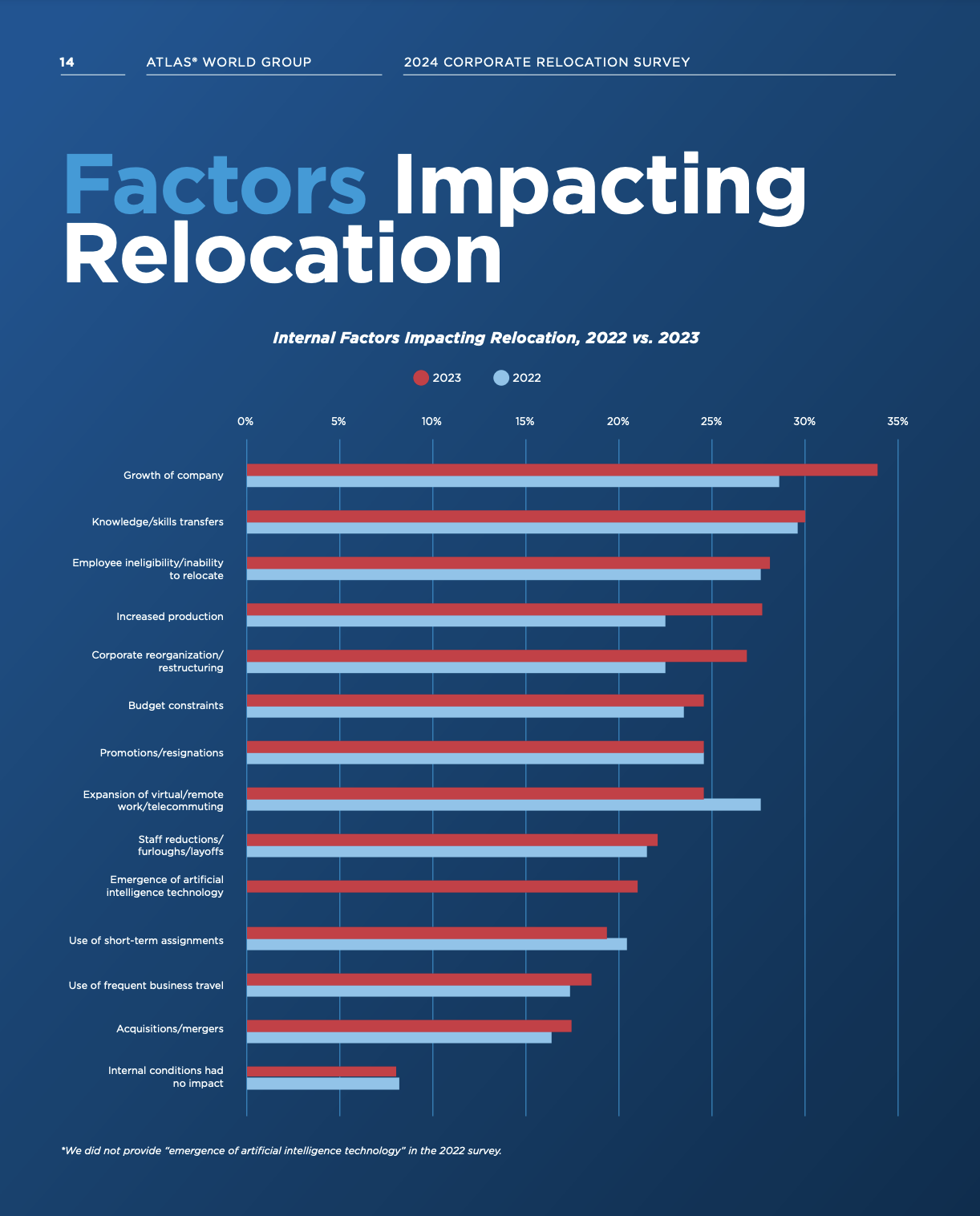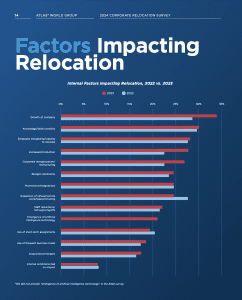
Understanding the Dynamics of Corporate Relocation
Top Articles
-
The Top 10 Cities People Have Moving to in 2023
Are you thinking of making a move in 2023? If so, you’re not alone! Every…
-
2023 Corporate Relocation Trend Predictions You Need to Know
The business world is constantly evolving and adapting to new challenges and opportunities. As the…
-
The Ripple Effects of Economic Uncertainty: How Businesses are Navigating Corporate Relocation
With global economic uncertainty on the rise, many businesses are facing difficult decisions about their…
-
When to Offer Lump Sum Relocation Benefits And What to Consider
Relocation is a business necessity to get the right people in the right location. Financial…
-
5 Tips For Choosing a Corporate Relocation Management Company
There are several things to consider when choosing a corporate relocation management company to help…









